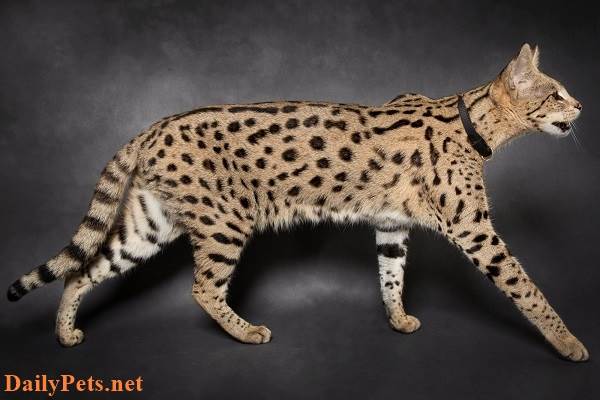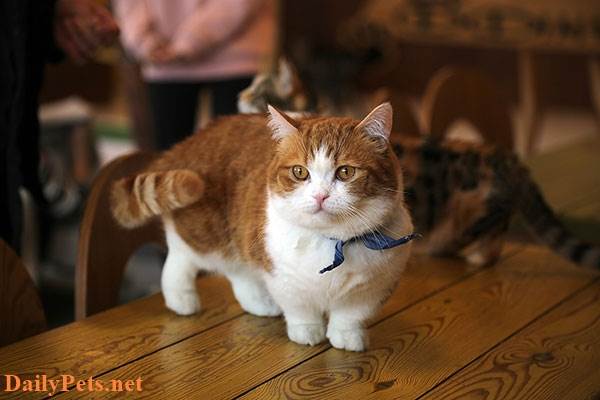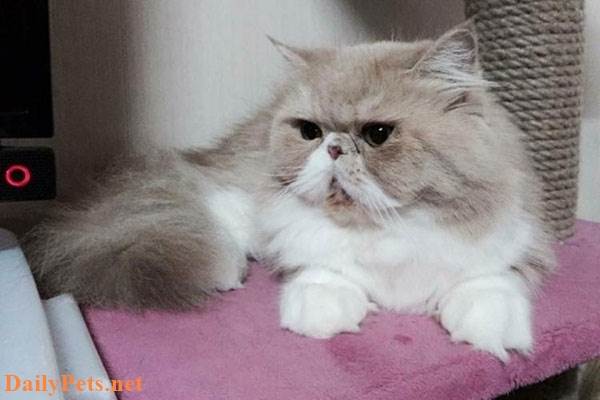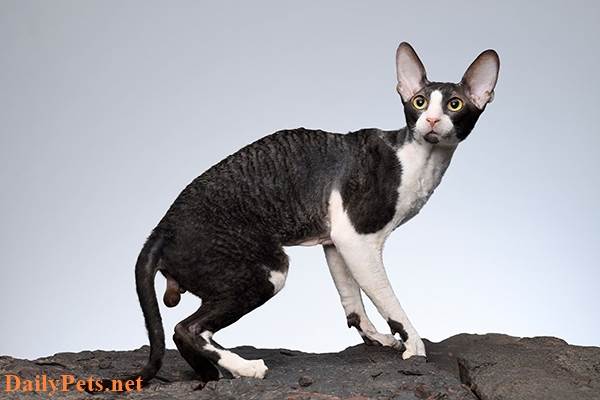So, what makes them special compared to other cat breeds, and how much do they cost?
Let’s explore the origin, characteristics, and care of the Savannah cat breed through this article with DailyPets.net.
Origin and History of the Savannah Cat Breed
The origin of the Savannah cat breed is closely linked to a breed developer named Frank Judee. Driven by the sadness of losing a kitten, he was determined to conduct research to create a healthier and more agile cat breed. The miraculous moment arrived when he decided to crossbreed a Siamese cat with a Serval cat (a wild African cat) from another breeder named Suzi Wood.
The result was a kitten with the most distinctive features of the Serval cat, which surprised both F. Judee and Suzi Wood. They realized they had successfully created a new cat breed and decided to name them Savannah.
Although they have a close genetic relationship, Savannah cats differ significantly from Serval cats. Serval cats tend to have a wild and more aggressive nature, while Savannah cats are known to be gentle and suitable for domestication as pets.
The history of the breed also involves two important figures in its development and protection from the strict standards of TICA, the cat association: Patrick Kelley and Joyce Sroufe. After seeing photos and recognizing the beauty of this breed, they made every effort to breed these special cats. Finally, in 2001, the Savannah cat breed was officially recognized by TICA, and it was approved by all major cat associations in 2012.
Appearance characteristics of the Savannah Cat
Savannah cats have a slender, muscular body with a large chest and notably long legs. Their heads are relatively small and tend to form a triangular shape, resembling Siamese cats. They have a pronounced nose, large ears compared to the head size, and an ideal physique that allows them to move quickly, making them excellent hunters. Therefore, you don’t have to worry about rodents causing havoc in your home if you have a Savannah cat.

Savannah Cat.
Savannah cats are also known for their yellow or dark brown coat with many black spots. When you touch a Savannah cat for the first time, you might feel like you’re touching a small leopard.
In addition to their striking appearance, Savannah cats have a considerable weight, often much heavier than Maine Coon cats, with an average weight ranging from 6 to 12 kg. They can live for 12 to 20 years, making them one of the cat breeds with a relatively long lifespan.
Personality Traits of the Savannah Cat
The first personality trait associated with Savannah cats is loyalty. These large cats are known for being brave and protective of their owners. They exhibit a perfect blend of strength, independence, obedience, and attentiveness. Training a Savannah cat is relatively easy due to their quick learning ability.
Because of their lively and active nature, they always enjoy adventurous activities, which pique their curiosity and interest. Unlike most cats, Savannah cats are unafraid of water and enjoy playing with it. Additionally, they excel in games such as fetching items thrown at a distance, much like dogs.
Distinguishing Savannah Cats from Bengal Cats
At first glance, Savannah cats and Bengal cats may appear quite similar. So, how do you distinguish between these two breeds?
The most noticeable difference is the size. Savannah cats are significantly larger than Bengal cats. Their length, leg, and ear size are longer and larger, especially in the earlier generations (F1 and F2).
Another difference is the tail length. Savannah cats have shorter tails compared to Bengal cats. This may be due to the fact that Savannah cats primarily live in grasslands or wetland areas, while Bengal cats predominantly inhabit dense wild forests.
Additionally, the way they move is distinct. Savannah cats prefer running, while Bengal cats tend to leap and jump. Therefore, if you have a Savannah cat, it’s a good idea to take them to parks or open spaces regularly.
Caring for Savannah Cats
Savannah cats are a hybrid breed with inherent adaptability to varying weather conditions, thanks to their wild ancestry. Therefore, raising and caring for a Savannah cat is not too challenging, even in the climate of Vietnam.
In terms of food, you can feed Savannah cats similar to regular cats, although it’s recommended not to do so. You can consider making homemade cat food or saving a few cups of iced tea every day to purchase high-quality cat food or cat kibble.
Savannah cats have short coats, making grooming relatively straightforward. Brushing their fur with a specialized brush for about 10 minutes a day should suffice. Every 2 weeks to a month, you can give them a bath with cat shampoo. It’s a good practice to trim their nails before bathing to reduce their scratching power.
Price of Savannah Cats
Savannah cats are mostly imported from Indonesia, one of the countries with a significant population of Savannah cats. Another source is Thailand, where the population of Savannah cats is limited. Savannah cats are one of the most expensive cat breeds in the world. Most Savannah cat owners are well-known and influential individuals.
The price of Savannah cats starts at around $1000 (imported from Indonesia), but you’ll receive an F4, F5, or even F6 generation cat at this price. An F1 generation Savannah cat can cost no less than $50,000. Therefore, only affluent individuals tend to own Savannah cats.
To clarify, an F1 Savannah cat is a first-generation cross between a Serval cat and a domestic cat. F2 to F6 generations are the offspring of Savannah cats bred with another domestic cat.
Because of their extremely high prices, Savannah cats are not widely available. If you’re interested in acquiring one, you can check cat groups on Facebook to find reputable suppliers. DailyPets.net will strive to update additional reliable sources so that true enthusiasts of Savannah cats can purchase with the best quality.





